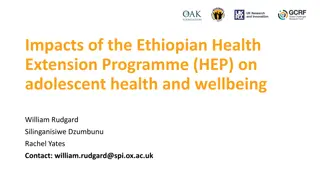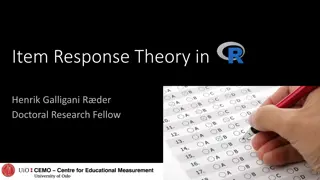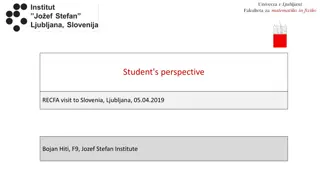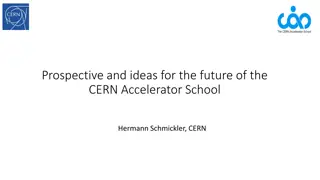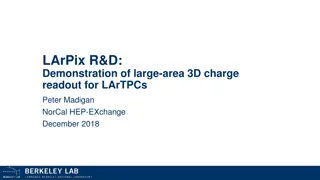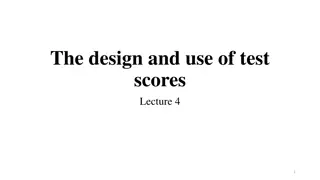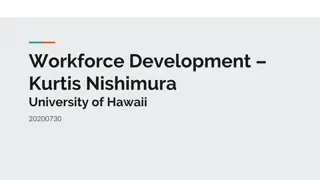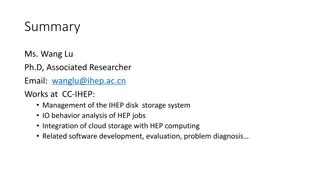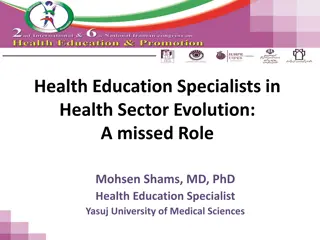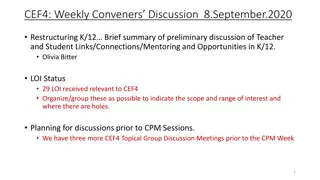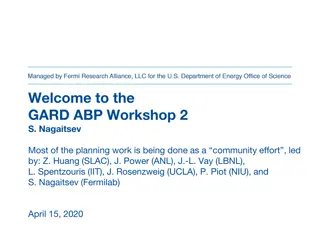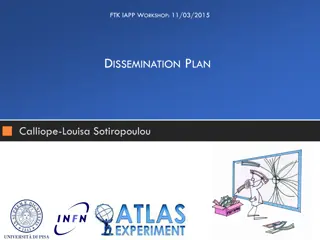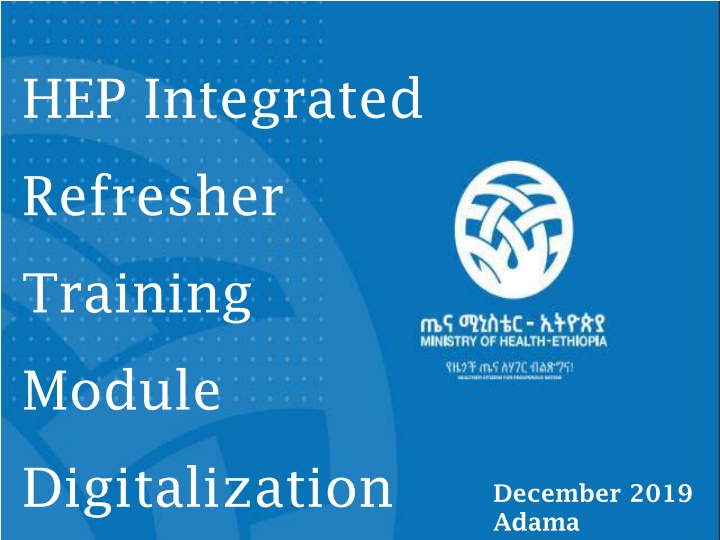
Effective Health Professional Training Methods and Principles
Explore the evolution and methodology of in-service training for health professionals, focusing on mastery training, adult learning principles, and behavior modeling. Understand how these approaches can enhance knowledge and skills for providing high-quality healthcare services to communities.
Download Presentation

Please find below an Image/Link to download the presentation.
The content on the website is provided AS IS for your information and personal use only. It may not be sold, licensed, or shared on other websites without obtaining consent from the author. If you encounter any issues during the download, it is possible that the publisher has removed the file from their server.
You are allowed to download the files provided on this website for personal or commercial use, subject to the condition that they are used lawfully. All files are the property of their respective owners.
The content on the website is provided AS IS for your information and personal use only. It may not be sold, licensed, or shared on other websites without obtaining consent from the author.
E N D
Presentation Transcript
HEP Integrated Refresher Training Module Digitalization December 2019 Adama
Outline Health Extension Program IRT module development Digital training material development
Primary Health Care It is the bridge to bring basic health services to the people where they live and work. Astana: From Alma-Ata towards universal health coverage and the Sustainable Development Goals
HEP: EVOLUTION 40,000 HEWs & 17,000 HPs CBNC Second generation HEP and HEP optimization 2017/18 Health Developme nt Army 2010 Implanon 2009 Urban Health Extension program iCCM Pastoralis t HEP launched 2006/7 Rx of Malaria HEP launched and expansion to rural kebeles in 2005 2003
The Goal of In service Training To assist health professionals in learning to provide safe, high quality health services to the community through improved work performance.
In-service Training Methodology Mastery Training Approach Adult Learning Principle Experience Learning Cycle
Mastery Training Itassumes that allparticipants can master (learn) the required knowledge, skills or attitudesprovided sufficient time is allowed and appropriate training methods areused. The goal of mastery learning is that 100 percent of those beingtrained will master the knowledge and skills on which the training isbased.
Adult learning principles ALP: learning is participatory, relevant andpractical through applying/using:- behavior modeling competency-based humanistic training techniques
Behavior modeling A person learns most rapidly and effectively from watching someone perform (model) a skill or activity. It takes place in three stages:- Skill Acquisition: knows the steps and their sequence to perform the required skill or activity but needs assistance Skill Competency: can perform the required skill or activity correctly Skill Proficiency: efficiently performs the required skill or activity
Kolbs theory of experiential learning cycle Concrete experience (values clarification) Active Reflective observation (critical thinking) experimentation (applying new learning) Learners Abstract conceptualization (internalizing new learning/expanding existing learning)
Developing a Course Syllabus The course syllabus provides a summary of the major components of acourse and may be given to individuals requiring information about thecourse in advance of training. A syllabus usually contains the following information: Course description Methods of course evaluation Course goals Course duration Participant learning objectives Suggested class size Description of training methods Course dates Description of training materials Course organizer Participant selection criteria
Training Guide: Structure IRT: Description IRT: Goal IRT: Learning Objectives [# 6 as the module] Module: Description Module: Goal [1/6 learning objective] Module: Objectives [# as per units]
Training Guide: Unit: Description Unit: Goal [one of module objective] Unit: Objective [# as per session] Session: Topic Session: objective [one of unit objective]
Training Guide: Enabling objectives Learning Method Allowed Time Learning Materials Learning Activities/Steps [Instruction and content] Facilitator Note
Study finding A time- motion study shows that they seem to give due priority to family health services (45% of time spent); hygiene and environmental sanitation (30%) and disease prevention and control 12% but only 1% for NCDs According to FMOH- HEP assessment report NCD performances are very low in terms of screening, HE, and referral
Study finding According to MTR-2018 and FMOH 18, HEWs are lacking the required competences in terms of knowledge (KPS) and skill to provide NCD services based on Level 4 critical aspects of competences. Skill domain has been very critical
Training modality Face to Face Distance E-learning [online] Blended
Digital Module Development Digital module [multimedia] LEEP project on RMNCAH module using SMS and IVR supplemented with face to face approach by basic phone SharePlus Korea company on hygiene and environment health using 2D, 3D and video graphic in blended training approach by smart phone
Blended learning Three main benefits improved pedagogy increased access and flexibility increased cost effectiveness
Digital IRT Module Development General Objectives: To ensure the health extension professionals knowledge, attitude and skills through periodically updated using appropriate digital technology to enable them provide good quality health care services to the community.
Digital IRT Specific objectives: Develop a digital module of integrated refresher training for health extension professional Test the digital module to its appropriateness and compatibility as a blended training material Endorse the digital module and scale at the national for the cascading of integrated refresher training across all regions

